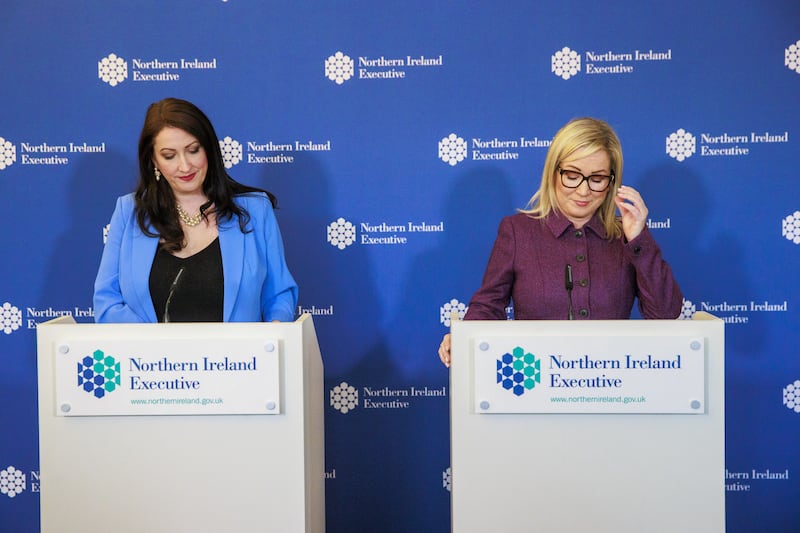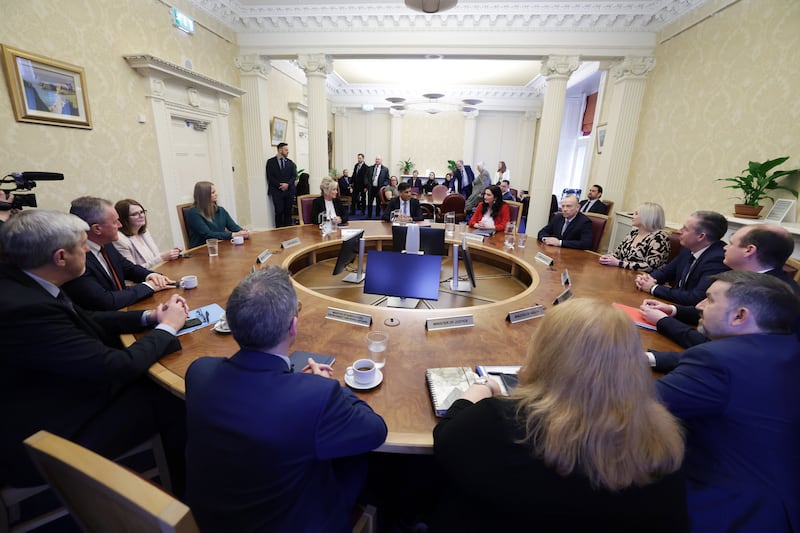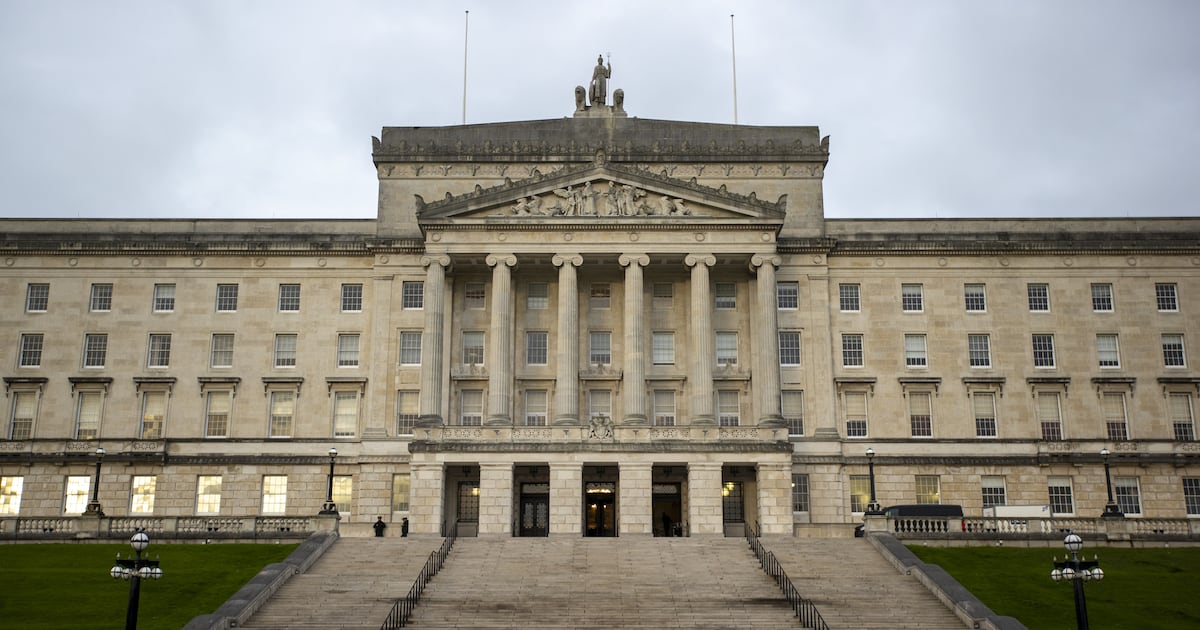A third ‘first minister’ in the Northern Ireland Executive is among a number of suggested changes to the devolved institutions, an event exploring options for Stormomt reform has heard.
The ‘Reform of Stormont: Options for Discussion’ event took place at Queen’s University Belfast (QUB) on Monday evening.
It explored the contents of a recently published report from the Constitution Unit at University College London (UCL), which outlined options for reform.
More: Sinn Féin and DUP fail to support MPs’ Stormont reform recommendations
The paper was inspired by the “growing” talk around possible reforms to the institutions, concerns around repeated collapse and criticism of government delivery.
 First Minister Michelle O’Neill and deputy First Minister Emma Little Pengelly are joint heads of the Executive. (Liam McBurney/PA)
First Minister Michelle O’Neill and deputy First Minister Emma Little Pengelly are joint heads of the Executive. (Liam McBurney/PA)
It comes as the Assembly and Executive Reform Committee (AERC) agreed to seek written evidence around reform from the Irish and UK governments, as well as the potential for future public consultations.
A report previously published in 2023 by the Northern Ireland Affairs Committee (NIAC) at Westminster recommended renaming the positions of first and deputy first ministers as ‘joint first ministers’ and electing the Assembly speaker with a two-thirds majority.
The new UCL report objectively examined these suggestions as well as others, including the possibility of having three first ministers – one for each designation of nationalist, unionist and ‘other’.
The current joint nature of the office was seen as “operationalising” the parity of esteem between the dominant unionist and nationalist blocs post-1998, however it noted that society is no longer as “binary” as it once was.
“That fact invites the question whether the current arrangement remains desirable, with parity of esteem appearing not to be granted to those not belonging to the two largest designations,” the report stated.
 Then-Prime Minister Rishi Sunak and Northern Ireland Secretary Chris Heaton-Harris meeting the First and Deputy First Ministers along with the restored Executive ministers in 2024. (Kelvin Boyes/Press Eye/Kelvin Boyes/Press Eye/PA Wire)
Then-Prime Minister Rishi Sunak and Northern Ireland Secretary Chris Heaton-Harris meeting the First and Deputy First Ministers along with the restored Executive ministers in 2024. (Kelvin Boyes/Press Eye/Kelvin Boyes/Press Eye/PA Wire)
“To date, it has been the ‘others’ who have thereby been disadvantaged. But it could in future be either nationalists or unionists.”
The report suggests that a move to one First Minister could divert the focus from who leads government and place it on the Executive as a whole.
It suggested that the role could rotate between political parties, like the previous coalition arrangement between Fianna Fáil and Fine Gael in the Republic.
However, it added that if this were not possible, having three First Ministers from each designation would be “another logical alternative”.
It highlighted that it could “make the system more representative” but that it could also “go beyond what was equitable” given the two prominent blocs continue to receive the majority of votes at almost 70%.
Any such move would also require reform to voting weight for the ‘other’ designation in the Assembly or could involve abolishing the cross-community vote.
The change was just one of a number of potential changes which were assessed in the UCL report.
It did not offer judgements on which proposals would be best, but rather aimed to “enable structured and informed debate on reform ideas” by presenting the proposals in a “non-partisan and objective manner”.


